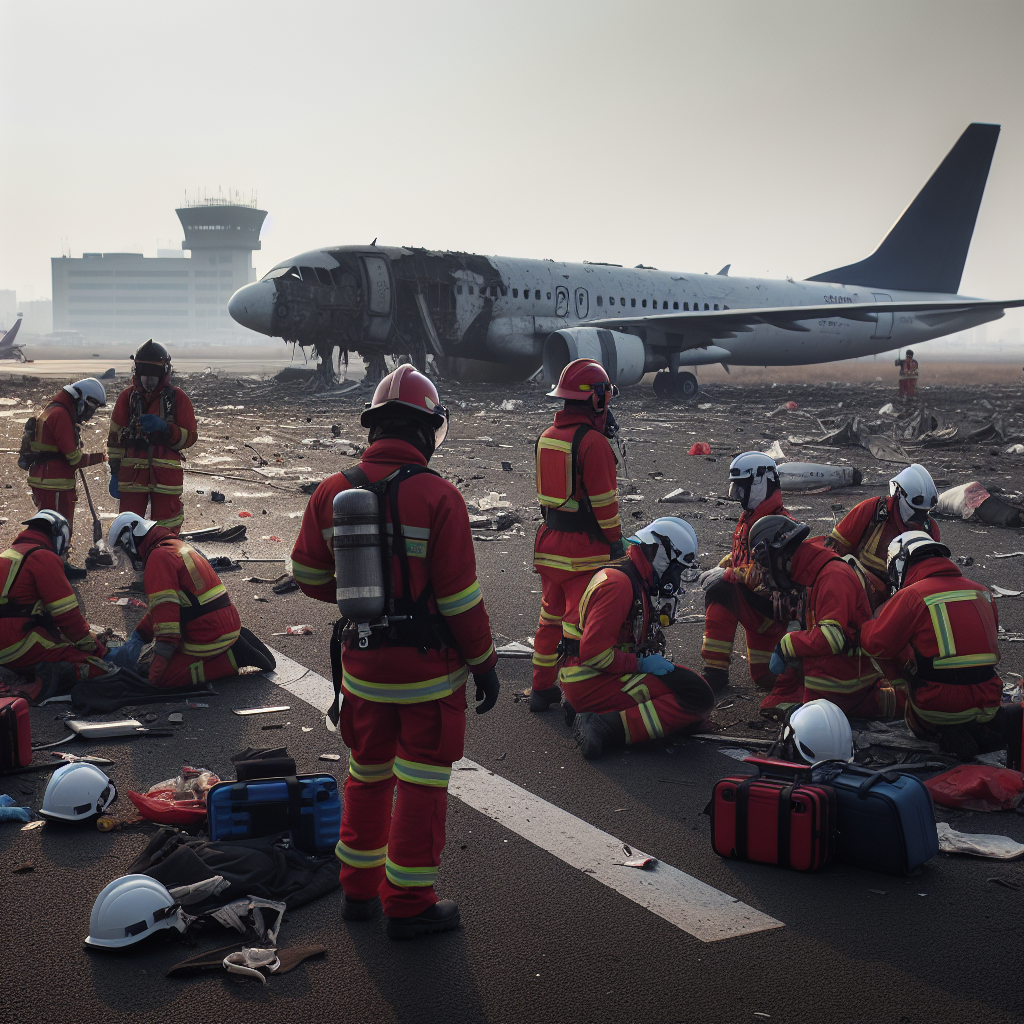You know, tragic accidents in aviation feel like a punch in the gut, don’t they? 😣 I mean, we all have that inclination to fly and to trust that everything will go well. But stories like the recent disaster involving Air India remind us how fragile life can truly be.
Today, I want to unpack this heartbreaking event and talk about the chaos and complexity surrounding it. We’ll look at what happened, why it matters, and what we can do to protect ourselves in the future. Ready to take flight? Let’s go!
What Happened? The Incident Explained ✈️
On a fateful day in Ahmedabad, an Air India aircraft met with tragedy. Out of the 300 passengers onboard, only one survived; that’s a staggering loss. But how does one accident lead to such devastation?
The flight, which was en route to London, crashed shortly after takeoff due to unidentified causes that are still under investigation. This sets the stage for a dialogue about aviation safety, a topic often taken for granted.
Causes of Aviation Accidents 🔍
Accidents in aviation can stem from various factors. Often they involve a tangled web of circumstances that require thorough investigation.
- 🔧 Mechanical failure of crucial systems
- 🌫️ Poor weather conditions affecting visibility
- 👨✈️ Human error, which can be a significant contributor
- 🚨 Neglect of safety protocols or regulations
Aviation safety measures are vital, and ongoing training for crews can help mitigate the chance of accidents.
The Aftermath: Coping with Loss 💔
The loss of over 300 lives isn’t just a number; it’s a tragedy with profound emotional implications. Families are forever changed, and a community mourns.
- 💔 Families grappling with unforeseen grief
- 🤝 Support networks being formed for victims’ families
- 📰 Media coverage that brings the tragedy into public view
Tragedies like these can deeply impact mental health; it’s important to seek support if needed.
Learning from Tragedy 📚
As we reflect on this accident, it’s clear that learning from such tragedies can lead to improvements in aviation safety.
- Enhancing safety regulations: Stricter guidelines can lead to better aircraft maintenance.
- Investing in technology: Advanced technologies can provide better monitoring of flight conditions.
- Training and protocols: Regularly updated safety training for all flight personnel is crucial.
Summary: Key Learnings 📝
Let’s wrap up our reflections on this tragic event:
- The Incident: A tragic loss of over 300 lives in Ahmedabad.
- Causes: Mechanical failures, weather, human error.
- Aftermath: Families coping with grief and loss.
- Improvements: Safety measures for preventing similar accidents.
It’s essential to remember that we are all in this together — and learning from the past can help us shape a safer future. If you have questions or thoughts, drop them in the comments below! 😊

